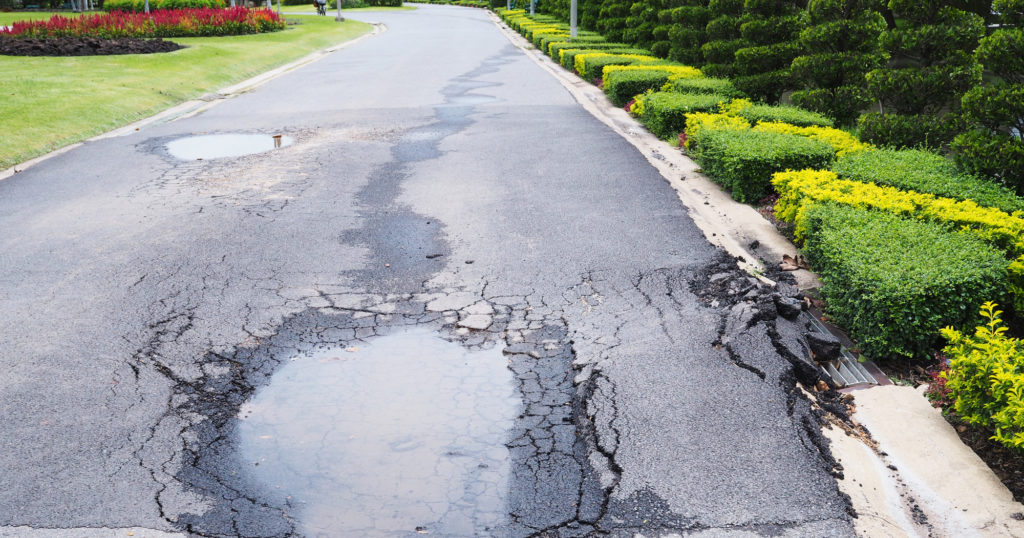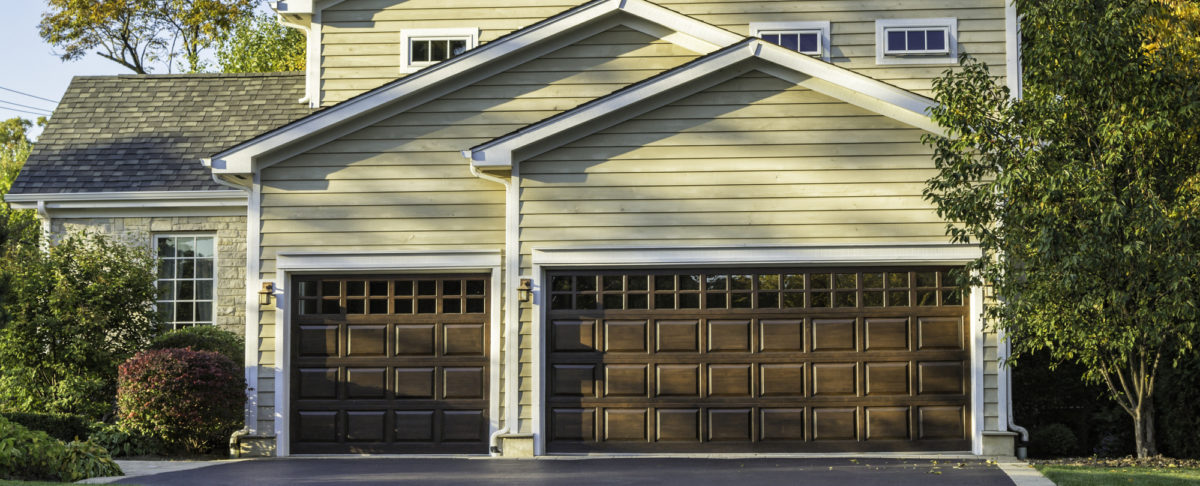If you’re a homeowner with an asphalt driveway, it’s likely that you’ve been faced with the decision of whether sealcoating should occur. While sealcoating comes with an investment, it’s an excellent preventive measure to take to maintain the appearance of your asphalt driveway, prolong deterioration, and increase its overall life. Your driveway is a feature of your property that is noticed immediately by passersby and guests, making it incredibly essential to maintain and care for properly. If you begin to see trouble spots such as potholes, crumbling areas, cracks, or fluid stains, it’s likely that your driveway is experiencing pavement fatigue, and it’s time to begin taking action to prolong further damage and costly repairs.
Why Should You Sealcoat?
While asphalt has impressive waterproofing and adhesive capabilities, it tends to break down over time. Water, salt, and other compounds impact asphalt’s overall structure, which causes your driveway to lose its binding and waterproofing abilities. If you notice a change of color, cracking, potholes, or any other wear and tear, it is likely time for maintenance or a complete replacement. Sealcoating your asphalt driveway provides a barrier between harmful compounds, thus prolonging deterioration and increasing the life of your driveway.
Inspect Your Asphalt Driveway
It’s initially encouraged to inspect your driveway for trouble spots such as potholes, crumbling areas, cracks, and fluid stains. If any potholes are present on your driveway, this is a sign of pavement fatigue caused by aging over time. Water and other compounds penetrate through asphalt and into the stone base, creating more significant issues and wearing to show. Sealing cracks and monitoring any trouble spots will extend the life of your driveway and prevent any harmful compounds from further penetrating the asphalt. It’s essential to account for any trouble spots and keep documentation, so history is easily accessible and readily available whenever needed.
Prepare Your Asphalt Driveway Correctly
Preparing your driveway for maintenance and repair is extremely important as the finished product will translate how carefully you prepared. Keep grass trimmed back from the edges of your asphalt driveway and remove any dirt or vegetation that’s built up in cracks. A broom, leaf blower, and water hose can be utilized to clean loose debris and particles from your driveway. If there are any fluid stains, it’s recommended to use dish soap with a scrub brush to remove. If you’re skeptical of whether stains have been removed completely, a specialty primer can be applied to assist you further.

Pothole Repair
If you notice potholes occurring in your driveway, you must repair them immediately. If they are not tended to, they will likely continue to grow over time and cause much more significant issues. Cold patch or ready-to-use asphalt can be used to repair potholes, deep depressions, and crumbling.
- Clean the area of any debris or loose asphalt.
- Use a shovel to spread the ready-to-use asphalt across the hole.
- Compact the problem area and add more asphalt, if necessary.
- Repeat this process until the hole or depression is filled and even with the rest of the driveway.
- Allow 24 hours for settling before applying sealcoat.
Seal Cracks
Once fresh asphalt is laid, the sun begins the oxidation process almost immediately. Over time, oxidation causes asphalt to break down, turning the surface from black to gray. If your driveway isn’t adequately maintained on a regular basis, the asphalt will get brittle and crack over time. Cracks allow water to penetrate asphalt and the stone base, which leads to extensive damage. It’s encouraged to keep any cracks sealed, as this will prolong the life of your asphalt driveway. It’s encouraged to utilize a filler when sealing cracks as the filler will be cost-saving and keep the sealer from running down to the stone base. When filling cracks, make sure it is level with the surface of your driveway. Over time as the sealing material settles, a second layer may be required to ensure a level surface. Regardless, sealing cracks regularly will result in a longer-lasting repair and adequately prepare your asphalt driveway for sealcoating.
Sealcoating Your Driveway
Sealcoating is an excellent procedure for property owners to apply to their asphalt driveways to prolong deterioration due to aging and prevent deep depressions as well as crumbling from occurring.
- Sealcoating solution is applied with a brush by an asphalt professional. The solution consists of a blended polymer pavement mixed with rubberized polymer epoxy latex. Sealcoating provides added flexibility and rejuvenates the dark black color of fresh asphalt once dry. The solution also contains sand and silica for added durability and traction.
- Fresh sealcoating must be left alone for at least 48 hours to allow for complete drying. It’s encouraged to remain cautious with new sealcoating as forceful movements, and extreme weight can hinder the sealcoating solution’s performance.
On average, sealcoating can have lasting effects of up to two years. Over time the sealant wears away, and the dark black color will turn to gray. This is when property owners will know that a new coat of sealant is required. There are instances where the life of sealcoating is shorter due to sun exposure, fluid spills, and the amount of traffic in your driveway on a regular basis.
Contact a Sealcoating Professional Today
Sealcoating your driveway and performing proper maintenance on potholes, crumbling areas, cracks, and fluid stains are excellent preventative measures to extend the life of your asphalt driveway. Many homeowners have found value in investing in these measures as a driveway is a significant investment, and trouble spots that are not cared for will likely lead to more costly maintenance requirements. Homeowners must monitor the condition of their asphalt driveway on a regular basis to catch any issues early on and perform any necessary fixes. If you’re unsure of where to begin or feel the damage on your asphalt driveway is already extensive, it’s encouraged to contact an asphalt paving company to determine what next steps are to keep your property in optimal shape.




